Disclosure: This article contains affiliate links. We may earn a commission from purchases at no extra cost to you, which helps our travel content.
There's something almost jurisprudential about the balance between work and leisure—a delicate equilibrium that, when achieved, creates a harmonious existence. Two weeks ago, as I stood on White Beach watching the sunset paint the sky in hues reminiscent of my grandmother's Scottish highlands watercolors, I realized I had found this balance in Boracay. The island has undergone its own transformation since its environmental rehabilitation in 2018, making it not just a tourist haven but a viable destination for the discerning professional seeking both productivity and paradise. As someone who has spent years navigating the intersection of environmental protection and cultural heritage, I found Boracay's renaissance particularly poignant. This guide distills my experiences and research into actionable insights for professionals looking to trade boardrooms for beach views without sacrificing productivity. Whether you're escaping Virginia's winter or seeking new perspectives on your work, Boracay offers an intriguing case study in how business acumen and beach life can coexist in sustainable harmony.
Selecting Your Digital Nomad Base
The foundation of a successful workation lies in choosing accommodations that serve both your professional and personal needs—a principle not unlike establishing proper jurisdiction in legal proceedings.
Boracay's geography divides naturally into stations, each with distinct advantages for the working traveler. Station 1 offers premium accommodations with reliable infrastructure but commands higher rates. Station 2 provides the ideal middle ground—proximity to amenities while maintaining reasonable rates and sufficient quiet spaces. Station 3, my personal preference, offers a more authentic experience with local interactions that informed my understanding of the island's ecological challenges.
During my stay, I opted for a boutique hotel in Station 3 that offered dedicated workspace areas, reliable fiber-optic internet (a non-negotiable for virtual court proceedings), and proximity to less-frequented beach areas where I could conduct research on coral reef protection initiatives. The property featured a dedicated co-working space with ergonomic seating—essential for long days reviewing case precedents.
My portable monitor proved invaluable, transforming my modest desk into a functional workstation that rivaled my chambers back in Richmond. When selecting accommodations, don't hesitate to request internet speed tests from potential properties—connectivity remains inconsistent across the island despite significant improvements since 2018.

💡 Pro Tips
- Request internet speed tests before booking accommodations
- Consider Station 3 for a quieter work environment with more authentic local experiences
- Book accommodations with dedicated workspace areas or nearby access to co-working facilities
Establishing Productive Routines in Paradise
The juxtaposition of paradise against productivity creates an interesting tension that requires intentional structure. On Boracay, I quickly established what I call my 'bifurcated day' approach—a practice that maximizes both work efficiency and island exploration.
My routine began at dawn with a mindfulness session on the eastern side of the island, where fewer tourists venture. This practice, informed by my Scottish grandmother's emphasis on morning reflection, provided mental clarity before tackling complex legal research. I would then work intensively from 7 AM until 2 PM, capitalizing on both optimal brain function and time zone alignment with clients and colleagues in North America.
The afternoon hours I dedicated to field research, cultural immersion, or simply recharging—swimming among the recovering coral reefs or visiting local markets to document traditional fishing practices. This schedule allowed me to maintain professional momentum while still experiencing Boracay's cultural and natural offerings.
I found that maintaining this split schedule required robust time management tools. My digital planning system proved essential for maintaining this discipline, allowing me to digitize handwritten notes from beach interviews while keeping my calendar meticulously organized across time zones.
Particularly valuable was identifying the optimal work locations for different tasks. Complex legal writing I reserved for my hotel workspace, while correspondence and lighter reading I would complete at specific cafés with reliable WiFi and minimal distractions—Real Coffee & Tea Café in Station 2 became my unofficial afternoon office, offering both excellent connectivity and locally-sourced beverages.

💡 Pro Tips
- Adopt a 'bifurcated day' approach with intensive work in morning hours
- Identify specific locations for different types of work tasks
- Schedule mindfulness practices during non-peak beach hours
Navigating Connectivity Challenges
Reliable internet connectivity—the lifeblood of remote work—presents perhaps the most significant challenge on Boracay. The island's infrastructure, while vastly improved following its rehabilitation closure, still experiences fluctuations that would test the patience of even the most seasoned appellate judge.
I approached this challenge methodically, establishing a three-tier connectivity system that ensured I was never without options during critical work periods. My primary connection came through my accommodation's fiber internet. For backup, I maintained a local SIM card from Globe Telecom, which provided surprisingly robust 4G coverage across most of the island. As a final contingency, I carried a portable WiFi hotspot with a prepaid international data plan.
This redundancy proved invaluable during a virtual mediation I conducted between environmental stakeholders regarding coral reef preservation initiatives. When a brief power outage affected my hotel's WiFi, I transitioned seamlessly to my mobile data without disrupting the proceedings.
Strategic mapping of reliable connectivity points became part of my island orientation. I identified and tested multiple locations with dependable internet—from dedicated co-working spaces like Starbucks in D'Mall (offering business-grade WiFi) to smaller establishments like Sunny Side Café, whose owner had invested in commercial-grade internet infrastructure.
Perhaps most valuable was developing relationships with local business owners who understood the digital nomad's needs. At Hue Hotel's coworking space, the staff would proactively inform me about scheduled maintenance that might affect connectivity, allowing me to plan accordingly—a courtesy that reflects the growing recognition of workation travelers as valuable long-term guests rather than transient tourists.

💡 Pro Tips
- Establish a three-tier connectivity system with accommodation WiFi, local SIM card, and portable hotspot
- Map reliable internet locations across the island during your first days
- Build relationships with staff at co-working spaces for insider information about connectivity issues
Cultural Immersion as Professional Development
The true value of a workation extends beyond simply changing your office view—it lies in how new cultural contexts can reshape your professional perspective. As both a judge with environmental expertise and someone exploring my mixed heritage, I approached Boracay as a case study in cultural and environmental resilience.
I dedicated time to understanding the island's environmental rehabilitation journey, drawing parallels to cases I've adjudicated involving ecological restoration and sustainable tourism. Conversations with local environmental officers provided insights into the practical application of environmental law in a developing nation context—perspectives that would be impossible to gain from academic papers alone.
My genealogical research interests led me to connect with local historians who shared insights about the indigenous Ati people and the complex colonial history that shaped the Philippines. These conversations enriched my understanding of how cultural heritage intersects with environmental protection—a theme increasingly relevant in my judicial work.
To facilitate these cultural exchanges, I found my compact field recorder indispensable for documenting oral histories and interviews, allowing me to be fully present in conversations rather than frantically taking notes.
Particularly valuable was participating in a community-led coral restoration project, where I worked alongside marine biologists and local fishermen to transplant coral fragments. This hands-on experience provided tangible context for the environmental protection cases I frequently adjudicate, offering perspectives on community-based conservation that will inform my future rulings.
I recommend identifying specific aspects of your professional work that might benefit from cross-cultural perspectives and intentionally seeking out local experts in those areas. The insights gained often transcend what conventional professional development might offer.

💡 Pro Tips
- Connect your professional expertise with local initiatives for mutual learning
- Document conversations and insights with proper recording equipment
- Participate in community projects related to your field for hands-on perspective
Mindful Transitions Between Work and Leisure
The most challenging aspect of a workation isn't productivity or connectivity—it's the psychological boundary between professional focus and island indulgence. The temptation to check email during a sunset cruise or mentally draft arguments while snorkeling is ever-present.
I developed specific transition rituals that helped maintain clear boundaries between work and leisure states. After completing work sessions, I would perform a brief mindfulness exercise inherited from my Scottish ancestors—a moment of stillness with focused breathing that signaled to my brain that court was adjourned for the day.
Physical transitions proved equally important. Changing from my 'work attire' (still casual by Virginia standards, but distinctly different from beach wear) into leisure clothing created a tangible shift. Similarly, physically packing away my laptop privacy screen at day's end served as a ceremonial conclusion to professional obligations.
I designated specific areas for work and relaxation, never allowing my primary workspace to become a dining or entertainment area. This spatial separation reinforced mental boundaries and prevented the workation from becoming an endless series of half-work, half-leisure moments that would ultimately satisfy neither objective.
Perhaps most crucially, I maintained transparency with colleagues about my availability windows. Setting clear expectations prevented the anxiety of constantly checking messages during leisure time. My out-of-office message specified precise hours when I would be reachable, along with emergency contact protocols—bringing judicial clarity to communication expectations.
These boundaries aren't self-indulgent—they're essential for both professional effectiveness and genuine rejuvenation. Without them, you risk returning from your workation more depleted than when you departed, having neither fully worked nor fully relaxed.

💡 Pro Tips
- Create specific transition rituals between work and leisure modes
- Maintain separate spaces and attire for work versus relaxation
- Set explicit communication boundaries with colleagues back home
Ethical Engagement with Local Economy
A workation presents unique ethical considerations regarding your economic impact as both tourist and temporary resident. As someone who regularly adjudicates cases involving social justice, I approached my stay in Boracay with particular attention to equitable economic engagement.
Rather than limiting myself to tourist enclaves, I intentionally distributed my spending across local businesses. This meant frequenting family-owned restaurants like Smoke Resto for authentic Filipino cuisine rather than international chains, and purchasing necessities from local vendors at D'Talipapa market rather than convenience stores.
For accommodations, I researched ownership structures, prioritizing Filipino-owned properties that demonstrate commitment to environmental sustainability and fair labor practices. This often required looking beyond major booking platforms to find truly local options.
When seeking workspace alternatives, I divided my time between established co-working venues and smaller cafés, recognizing that my purchase of a single coffee could provide valuable income to local entrepreneurs while still providing the workspace I needed for a few hours.
I applied similar principles when engaging service providers for experiences. Rather than booking through international tour aggregators, I connected directly with local guides for snorkeling expeditions to learn about coral restoration. This not only provided more authentic experiences but ensured fair compensation reached those actually providing the services.
Perhaps most valuable was engaging local expertise for specialized knowledge. I compensated local environmental advocates and cultural historians fairly for their time when discussing island conservation efforts, recognizing that their insights constituted professional consultation rather than casual conversation.
This approach requires more effort than the convenience of all-inclusive packages or major booking platforms, but it aligns with the principles of responsible tourism that should guide our global interactions—particularly for those of us who, in our professional lives, are tasked with ensuring equity and justice.

💡 Pro Tips
- Research ownership of accommodations and prioritize locally-owned businesses
- Compensate local experts fairly when seeking specialized knowledge
- Diversify your spending across different areas of the island rather than remaining in tourist zones
Final Thoughts
As I returned to my chambers in Richmond, the sand literally and figuratively shaken from my case files, I found myself transformed by Boracay's lessons in balance. The island—itself a case study in environmental rehabilitation and sustainable tourism—provided more than just a scenic backdrop for emails; it offered a framework for integrating professional rigor with mindful presence. The question we must ask ourselves isn't whether work and leisure can coexist, but rather how their integration might enhance both domains. I invite you to approach your own workation not as an escape from professional responsibility, but as an opportunity to recontextualize your work against a broader horizon. After all, justice—like the perfect workation—requires balance, perspective, and occasional moments of breathtaking beauty. When will you make your case for a Boracay workation?
✨ Key Takeaways
- Establish clear boundaries between work and leisure through specific rituals and physical transitions
- Invest in connectivity redundancy to ensure professional obligations remain uncompromised
- Engage ethically with the local economy to ensure your presence benefits the destination
- Use cultural immersion as a form of professional development that provides unique perspectives
📋 Practical Information
Best Time to Visit
November to May (dry season), with December to February offering ideal weather conditions
Budget Estimate
$1,500-$2,500 for two weeks (excluding flights) depending on accommodation choices
Recommended Duration
Minimum 10 days, ideally 2 weeks
Difficulty Level
Intermediate

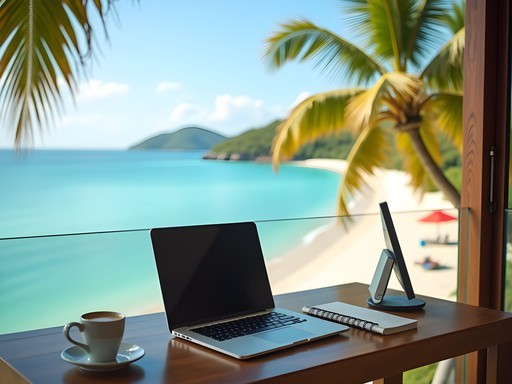







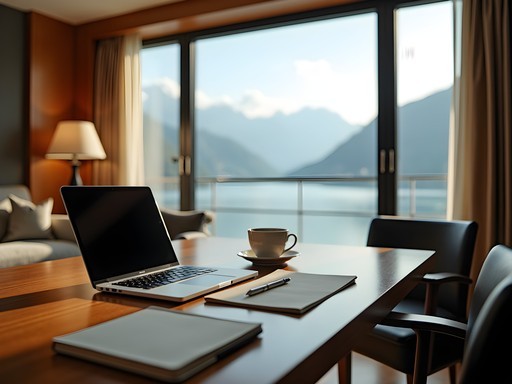
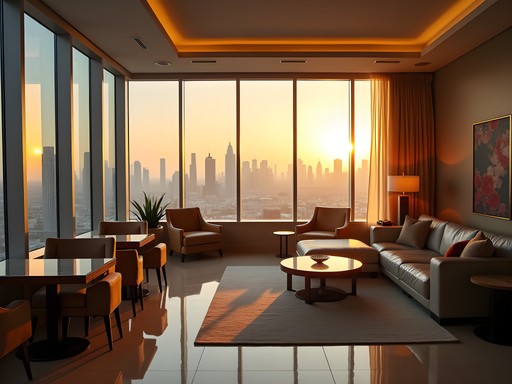
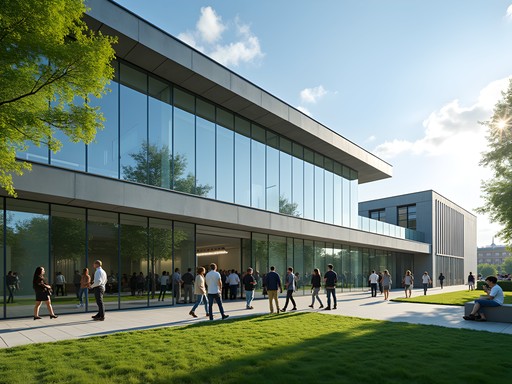
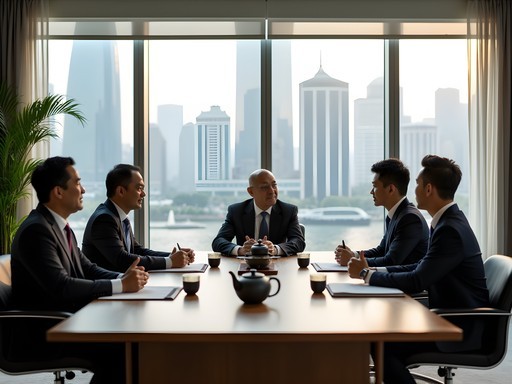
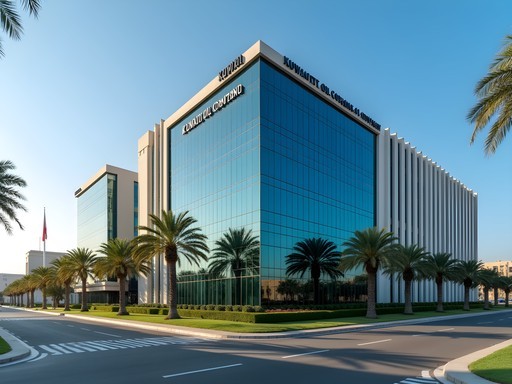
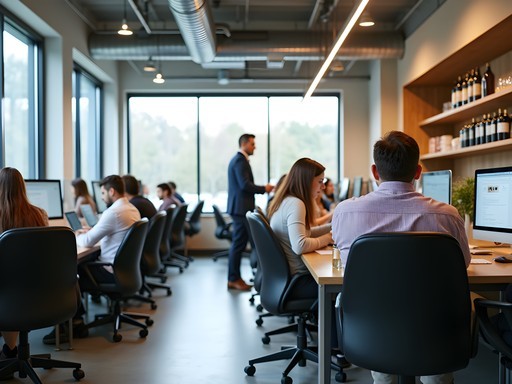
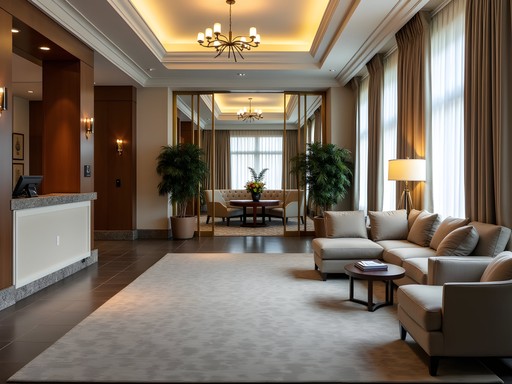
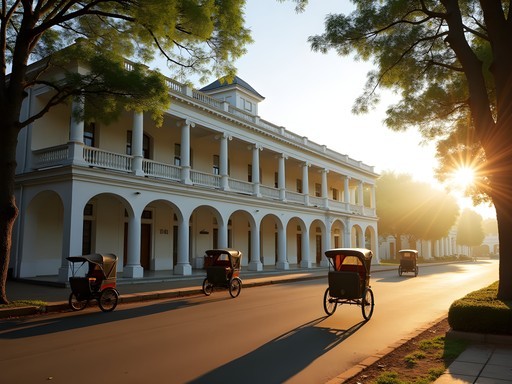
Comments
Timothy Jenkins
Brilliantly written piece, Zoe! Your section on 'Cultural Immersion as Professional Development' resonated deeply. I spent three weeks working remotely in the Philippines last year (though in Palawan, not Boracay) and found that engaging with locals completely transformed my creative output. There's something about stepping outside our comfort zones that sparks innovation. One tip for others considering a Boracay workation: consider the shoulder season (June or September). I've found you get the perfect balance of good weather, fewer tourists, and better accommodation rates. Plus, less crowded cafes make for better impromptu workspaces! Will be sharing this with my digital nomad network - exactly the practical guidance needed for balancing productivity and paradise.
adventurevibes
Love this! The jurisprudential reference made me wonder - are you a lawyer doing remote work? How did clients react to you working from paradise?
Zoe Watson
Good catch! Yes, I practice commercial law. Most clients were surprisingly supportive once they saw it didn't affect my availability or work quality. The time zone actually worked in my favor for my US clients!
dreamdiver
Planning a similar workation next month! How reliable was the internet at your accommodation? I need to join video calls regularly and I'm a bit nervous about that part.
greenwalker
Not Zoe, but I can tell you it really depends on where you stay! Anything in Station 1 or 2 was pretty decent for me, but always have a backup plan. I ended up buying a local SIM for hotspot just in case.
dreamdiver
Thanks for the tip! Any specific SIM card provider you'd recommend?
greenwalker
Globe worked best for me around the island, especially in the beach areas!
greenwalker
Just got back from my own workation in Boracay last month! That part about 'navigating connectivity challenges' really hit home. I found myself camping out at Sunny Side Café whenever my resort WiFi got spotty. The afternoon power outages caught me off guard during a client call - wish I'd read this before my trip! Did you find any good backup spots for working when the main tourist areas got too crowded?
Zoe Watson
Thanks for reading, greenwalker! For quiet work spots, I actually loved Real Coffee & Tea Cafe in Station 2 during off-peak hours. The upper deck was my secret weapon for important calls. And yes, those surprise power outages taught me to always keep my portable charger fully juiced!
skyguy9456
How's the pricing for monthly accommodations compared to daily/weekly rates? Worth negotiating directly with hotels?
Zoe Watson
Definitely negotiate directly! I saved about 30% on a 3-week stay by contacting the property through their website instead of booking platforms. Most places will offer substantial discounts for stays longer than 2 weeks, especially during shoulder season.
Casey Andersson
100% this. Also worth checking Airbnb for monthly discounts - found some places offer up to 40% off for 28+ day stays. The apartments near Angol Point had great monthly rates when I was there.
moonone
Just got back from Boracay last month and wish I'd read this before going! Tried working from there but ended up barely opening my laptop lol. The beach was too tempting! One tip I'd add - Real Coffee & Tea Cafe near Station 2 has decent wifi and amazing calamansi muffins that kept me going through morning work sessions. Also found that power outages were more common than I expected, especially after rain. Your routine tips would have saved me from basically failing at the 'work' part of workation!
greenvibes
Those calamansi muffins sound amazing!
skyfan
Just got back from my Boracay workation! Quick tip for anyone heading there: Spider House near Diniwid Beach was my favorite work spot - amazing views, decent WiFi, and not too crowded on weekdays. Perfect for those video calls where you want to make your colleagues jealous 😉
Megan Martin
Spider House is a gem! Did you try the sunset sessions there? Nothing like wrapping up work with a cocktail as the sun goes down.
skyfan
Yes! Those sunset sessions were the perfect reward after a productive day. Made all my deadlines feel worth it!
dreamlover
This sounds amazing! I'm planning to try this in March but worried about finding accommodation with reliable wifi. Where did you stay that had good internet? And did you have to book far in advance? First-time digital nomad here so any advice is appreciated!
Zoe Watson
Hi dreamlover! I stayed at Coast Boracay which had reliable fiber internet. I'd definitely book at least 2-3 months ahead for March as it's getting into high season. Also, I recommend bringing a portable router as backup - absolute lifesaver for those unexpected wifi emergencies!
dreamlover
Thanks so much! Will check out Coast and definitely getting that portable router recommendation.
Casey Andersson
Zoe, this resonates so much! I did a similar workation in Boracay last year and found Station 3 to be the perfect balance - quiet enough for focus but still close to everything. The afternoon productivity slump is real though - I started waking up at 5am to get solid work hours before the heat kicked in. Did you try any of the co-working spaces? I found Hue Hotels' business center surprisingly good for meetings. The sunset ritual became my daily reward for hitting deadlines! Your section on connectivity challenges is spot-on - I ended up with a dual SIM setup with both Smart and Globe to ensure I always had backup.
Zoe Watson
Thanks Casey! I didn't try Hue's business center - wish I had known! And yes, the dual SIM strategy is genius. I learned that lesson the hard way after a dropped call with a client during my first week.
skyguy9456
Which SIM provider had better coverage on the island? Planning my trip for January.
Casey Andersson
@skyguy9456 I found Smart worked better on the beach side while Globe had better coverage inland. Worth getting both if you're staying more than a week!
greenvibes
This is exactly what I needed! Been thinking about a workation and Boracay wasn't on my radar until now.
Venture X
Premium card with 2X miles, $300 travel credit, Priority Pass